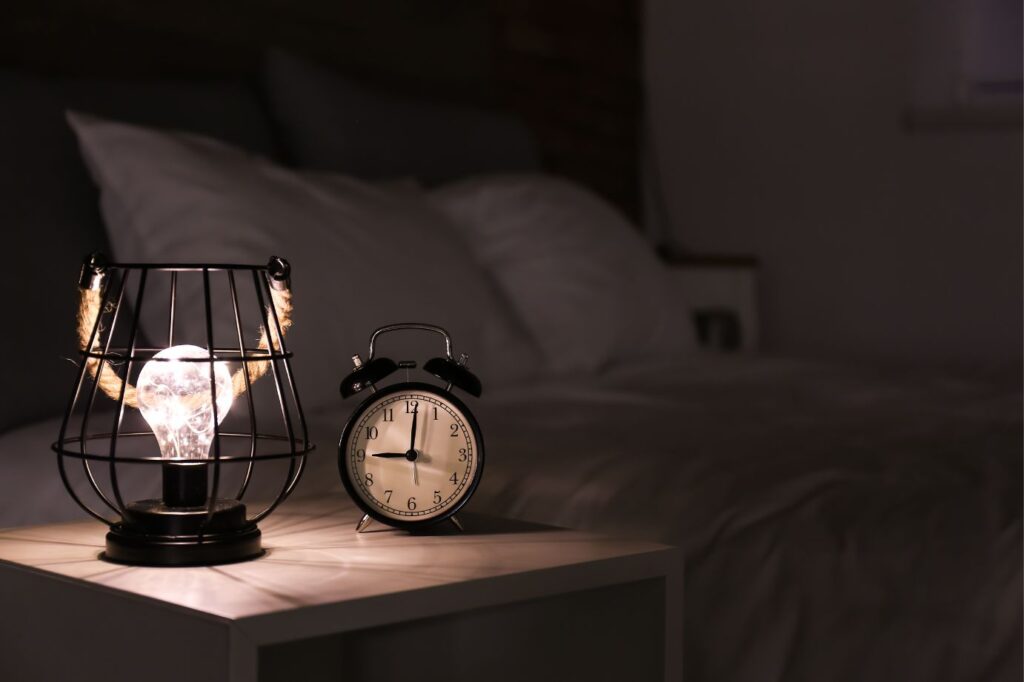Here is the 10 Proven Ways for Better Sleep
- Establish a Consistent Sleep Schedule
- Create a Relaxing Bedtime Routine
- Optimize Your Sleep Environment
- Develop a Calming Pre-Sleep Ritual
- Limit Screen Time Before Bed
- Get Regular Exercise
- Manage Stress
- Mind Your Diet
- Optimize Your Naps
- Create a Sleep Schedule That Works for You
Sleep is essential for our well-being, but many people struggle to get quality sleep. Poor sleep can lead to fatigue, irritability, and difficulty concentrating. In today’s fast-paced world, it’s easy to overlook the importance of good sleep habits, but its impact on our physical and mental health is significant.
You don’t have to rely on medications for better sleep. Natural remedies and lifestyle changes can help improve sleep quality. In this article, we’ll explore ten proven ways to naturally improve sleep quality, so you wake up feeling refreshed and energized.
1. Establish a Consistent Sleep Schedule

Our bodies function best on a regular routine, and having a consistent sleep schedule is essential for regulating our circadian rhythms the internal clock that controls our sleep-wake cycles. It is important to aim for a consistent bedtime and wake-up time every day, even on weekends.
This consistency helps strengthen your body’s natural sleep-wake patterns, making it easier to fall asleep and wake up feeling refreshed. Disrupting your sleep schedule can have negative effects on your overall health, leading to issues such as weight gain, increased stress levels, and a weakened immune system.
2. Create a Relaxing Bedtime Routine

Developing a calming pre-sleep ritual can signal to your body that it’s time to wind down and prepare for rest. Consider incorporating activities like taking a warm bath, reading a book (avoiding screens), practicing light stretches, or engaging in gentle meditation.
This routine helps quiet your mind, lower your heart rate, and promote a sense of relaxation, making it easier to drift off to sleep. For those who struggle with falling asleep due to stress or anxiety, a relaxing bedtime routine can be particularly beneficial in easing those tensions and promoting a more restful slumber and results in improving sleep quality.
3. Optimize Your Sleep Environment

The quality of your sleep is heavily influenced by your bedroom environment. It’s important to ensure that your bedroom is cool, dark, and quiet, as these conditions promote better sleep. You can use blackout curtains or an eye mask to block out light, and earplugs or a white noise machine to minimize disruptions from external sounds.
It’s also essential to make sure your mattress and pillows are comfortable and supportive, as any discomfort can lead to restless nights and poor sleep quality.
4. Develop a Calming Pre-Sleep Ritual

Quieting the mind and relaxing the body before bedtime can greatly aid in achieving quality sleep. Engaging in calming practices such as deep breathing exercises, progressive muscle relaxation, or mindfulness meditation can help release physical and mental tension, reduce stress levels, and promote a sense of tranquility.
As the mind and body unwind, these techniques can make it easier to drift off into a peaceful slumber. For individuals grappling with sleep disorders or persistent insomnia, making these calming rituals a part of their nightly routine can be especially beneficial in improving overall sleep quality and fostering more restful nights.
5. Limit Screen Time Before Bed

Exposure to the blue light emitted by electronic devices such as smartphones, tablets, and computers can inhibit the production of melatonin, the hormone that regulates our sleep-wake cycles. This disruption in melatonin levels can make it challenging to fall asleep and maintain quality sleep throughout the night.
To prevent interference with your natural sleep rhythms, it is advisable to refrain from screen time for at least one hour before your desired bedtime. During this electronic-free period, engage in calming activities like reading a book or listening to soothing music. These relaxing pursuits can help prepare your mind and body for restful slumber, allowing you to drift off into a peaceful night’s sleep more easily.
6. Get Regular Exercise

Engaging in regular physical activity can have a profoundly positive effect on the quality of your sleep. Exercise not only helps alleviate stress but also promotes healthier sleep-wake cycles and increases the time spent in deep, restorative stages of sleep.
However, it’s advisable to avoid strenuous exercise close to bedtime, as the energizing effects can make it more difficult to fall asleep. Instead, schedule your workouts earlier in the day to allow your body ample time to wind down, enabling you to reap the full benefits of a good night’s sleep. By maintaining an active lifestyle and strategically timing your workout routine, you can create an optimal environment for high-quality, rejuvenating slumber.
7. Manage Stress

Persistent stress and anxiety can have a profoundly negative impact on sleep quality, often resulting in challenges falling asleep or maintaining restful sleep throughout the night. To combat these effects, it’s essential to incorporate stress-reduction techniques into your daily routine. Practices such as yoga, meditation, deep breathing exercises, or engaging in hobbies and activities that bring you joy and relaxation can help alleviate stress levels.
Neglecting to manage chronic stress can have far-reaching consequences for overall health, increasing the risk of conditions like heart disease, depression, and a compromised immune system. By prioritizing stress management through mindful practices and enjoyable activities, you can cultivate an environment conducive to restorative, uninterrupted sleep.
8. Mind Your Diet

Your dietary choices can significantly influence the quality of your sleep. It’s advisable to steer clear of heavy or spicy meals close to bedtime, as they can lead to discomfort and disruptions in your sleep patterns. Additionally, limiting your intake of caffeine and alcohol is recommended, as these substances can interfere with your body’s natural sleep cycles.
Instead, consider incorporating sleep-promoting foods and beverages into your evening routine, such as tart cherry juice, chamomile tea, or foods rich in the amino acid tryptophan, like turkey or bananas. These sleep-friendly options can help promote relaxation and contribute to an overall improvement in your sleep quality, allowing you to wake up feeling refreshed and well-rested.
9. Optimize Your Naps

While napping can provide a restorative boost for some, it’s crucial to approach it strategically to prevent disruptions to your nighttime sleep routine. Aim to keep naps brief, ideally limiting them to 20-30 minutes, and avoid indulging in a midday slumber too close to your desired bedtime.
Longer naps can lead to a groggy, disoriented state upon waking and may make it more challenging to fall asleep at night, leaving you feeling even more fatigued the following day. By keeping naps short and well-timed, you can reap the refreshing benefits without compromising the quality of your nocturnal sleep.
10. Create a Sleep Schedule That Works for You

While general guidelines for sleep can be helpful, it’s important to remember that everyone’s sleep needs are unique. Experiment with different sleep schedules and routines to find what works best for your individual needs. Some people may thrive on a consistent 8-hour sleep schedule, while others may require more or less sleep to feel rested.
If you continue to experience persistent trouble sleeping or suspect an underlying sleep disorder, don’t hesitate to consult with a healthcare professional for personalized guidance.
Conclusion
Achieving high-quality sleep is essential for maintaining optimal physical and mental well-being. By incorporating these ten strategies into your daily routine, you can take control of your sleep patterns and wake up feeling refreshed and energized.
Remember, implementing these tips may require some experimentation and patience as you find the combination that works best for your unique needs. Start by gradually incorporating one or two techniques at a time, and be mindful of how your body responds.
In addition to the strategies outlined above, there are numerous resources available to support your journey to better sleep, including sleep tracker apps, online forums, and sleep clinics or specialists. Don’t hesitate to seek additional guidance or support if needed.
FREQUENTLY ASKED QUESTIONS
To establish a consistent sleep schedule, try to go to bed and wake up at the same time every day, even on weekends. This helps regulate your body’s internal clock and promotes better sleep patterns. Use tools like alarm clocks or sleep cycle apps to reinforce your desired sleep-wake times.
Some effective relaxation techniques for better sleep include deep breathing exercises, progressive muscle relaxation, mindfulness meditation, and gentle yoga. These practices can help calm the mind, reduce stress and anxiety, and prepare your body for restful sleep.
It’s generally better to sleep in a cool room, with temperatures around 65°F (18°C). A cooler environment can promote better sleep quality and help you fall asleep faster. Warmer temperatures can disrupt sleep and lead to restlessness.
It’s recommended to avoid screens (TVs, computers, smartphones, tablets) for at least 1-2 hours before your desired bedtime. The blue light emitted by these devices can suppress melatonin production and make it harder to fall asleep.
Some foods and drinks that can promote better sleep include tart cherry juice (which contains melatonin), chamomile tea (which has calming properties), and foods rich in tryptophan like turkey, bananas, and oats. Avoid heavy meals, caffeine, and alcohol close to bedtime.

